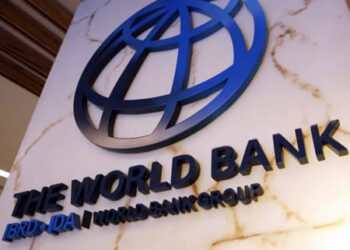In an effort to accelerate Nigeria’s economic growth, the Policy Advisory Council of President Bola Tinubu’s new administration has presented an ambitious proposal to propel the country’s economy to $1 trillion within the next eight years. The recently released Policy Advisory Council Report, dated May 2023, outlines a roadmap and series of initiatives aimed at achieving this economic milestone.
President Tinubu, addressing the National Economic Council (NEC) meeting headed by Vice President Kashim Shettima, acknowledged the magnitude of the task at hand. He reminded the 36 state governors in attendance that they campaigned and worked hard to assume this responsibility, stating, “We have no reason to complain.”
The policy advisory council’s initiatives focus on achieving a consistent average annual GDP growth rate of seven percent, ensuring sustainable economic expansion. The council comprises members such as Tokunbo Abiru, a banker and politician; Yemi Cardoso, the former chairman of Citibank Nigeria; Samaila Zubairu, President and CEO at Africa Finance Corporation; and Doris Anite, Imo State Commissioner for Finance and Coordinating Economy.
To attain the $1 trillion economy target by 2030, the council highlights the need to declare a state of emergency in revenue generation and national security. It recommends transforming key agencies, including the Federal Inland Revenue Service (FIRS), Nigerian Customs Service, and Nigerian Maritime Administration and Safety Agency (NIMASA), into the Nigerian Revenue Service. This centralized agency would be responsible for collecting all direct and indirect taxes and levies on behalf of the Federal Government.
The council’s roadmap encompasses strategic measures across fiscal policy, monetary policies, the capital market, and the industry and trade sectors. Under the fiscal policy, the government aims to address issues such as oil theft and pipeline vandalism while boosting oil and gas production. The plan involves streamlining government assets, automating revenue-generating agencies, optimizing operating expenditure, and announcing the elimination of the PMS subsidy, which has already taken effect since the president’s inauguration.
Regarding monetary policies, the council seeks to establish a transparent and unified foreign exchange rate system and resolve the cash shortage situation that affected the economy in the first quarter of the year due to naira redesign under the previous administration. It also aims to reform the operating model of the Central Bank of Nigeria and achieve specific targets such as an exchange rate band of N550-600 for the naira-dollar exchange rate, a nine percent interest rate, and a 13 percent inflation rate, all within eight years.
In the capital market, the government plans to issue long-term, high-yielding debt securities, such as special purpose bonds, to fund dedicated projects in sectors like agriculture and industry. Additionally, it aims to encourage increased participation of pension funds and insurance companies in the capital market.
The roadmap also highlights the importance of regulatory reforms in the industry and trade sectors to create a business-friendly environment and attract investments. Nigeria aspires to become Africa’s most efficient trading nation, increase the contribution of non-oil exports to GDP, boost the manufacturing sector’s GDP contribution, and position the country as the top investment destination among Mexico, Indonesia, Nigeria, and Turkey (MINT) economies’ foreign direct investment (FDI).
Alongside the $1 trillion economy goal, the council outlines several other targets, including lifting 100 million people out of poverty, generating over 50 million jobs in an enabling environment, and achieving sustained inclusive growth. Furthermore, the government aims to reduce the unemployment rate from 33 percent to 17 percent within eight years and create 7.2 million jobs by 2030.
The proposed plan sets a clear direction for Nigeria’s economic transformation, with ambitious targets and strategic initiatives that encompass various sectors. As the administration begins to implement these measures, the focus will be on driving sustainable economic growth, attracting investments, and creating a favorable business environment to realize the vision of a thriving $1 trillion economy.










